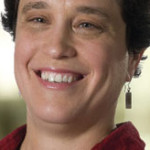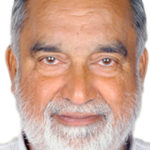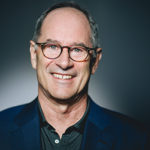Mirror, Mirror On The Wall, What’s The Impact Of This All
Video Description
This interactive session recorded at the 2008 Skoll World Forum explored various approaches to assessing impact and leveraging these efforts to attract resources and drive organisational learning.
Key questions included:
Who are the real audiences for impact assessment efforts?
Who really cares and is it worth the bother?
What happens in practice when social entrepreneurs are systematic about measuring impact?
How does this lead to organisational learning, increased impact and innovation, or to greater resource mobilisation?
Speakers
-
Chief Investment Officer, Acumen Fund
Brian Trelstad is the Chief Investment Officer of Acumen Fund, a non-profit global venture fund that uses entrepreneurial approaches to solve the problems of global poverty. In his role at the Acumen Fund, Brian gives oversight and direction to the fund’s investment portfolio. He also spends time working with the broader social enterprise community to develop metrics and tools to discuss the progression of the field as a whole. Before joining Acumen Fund, Brian worked for McKinsey & Company and was the environmental program officer of President Clinton’s AmeriCorps program.
-
CEO, Keystone Accountability
David Bonbright is Keystone’s founder and Chief Executive. A lawyer by training, he has extensive experience in international development as a grantmaker for institutions like the Ford Foundation and the Aga Khan Foundation and as an innovator in civil society strengthening. In the 1990s, he founded and led two South African citizen sector resource centres relating to organizational and sectorial development and to information and technology. David sits on a number of the boards, advisory councils and knowledge networks, including the governing board of CIVICUS Global Alliance for Citizen Participation, where he chairs the Programme Committee.
-

Senior Fellow, The William and Flora Hewlett Foundation
Fay Twersky, an expert on philanthropy and the nonprofit sector, serves as a Senior Fellow at the Hewlett Foundation. Ms. Twersky works closely with President Paul Brest and the Foundation’s program teams to refine the Foundation’s efforts to measure the progress and effectiveness of its grant portfolios. She consults with Foundation colleagues on a variety of topics related to the practice of philanthropy. Ms. Twersky spends some of her time writing and offering reflections to the field on issues facing both nonprofit and philanthropic institutions.
Ms. Twersky has an extensive background in program design and evaluation. Most recently, Ms. Twersky worked in Jerusalem, Israel, advising Yad Hanadiv (the Rothschild Family Foundation) on issues of strategy, organization, and measurement. She served for four years with the Bill & Melinda Gates Foundation, designing and developing their Impact Planning & Improvement division. In that post, she created standards and guidelines for developing strategies and measuring results across the organization’s three program areas. She was also a founding principal of the firm BTW – Informing Change, a firm that provides strategic consulting to foundations and nonprofit organizations.
As a noted speaker and writer, Ms. Twersky has authored countless articles and reports. Most recently, she was principal author of Measurement and Evaluation in Israel's Third Sector and A Guide to Actionable Measurement. She holds two bachelor’s degrees in Rhetoric and Middle Eastern Studies from the University of California, Berkeley, and a master’s degree in City Planning from the Massachusetts Institute of Technology.
-

Founder, One Family Foundation
Jeroo Billimoria is the founder of several innovative and award-winning NGOs and has over twenty years’ experience running systems change organizations. She is a Skoll awardee, an Ashoka and Schwab Fellow. Among her organizations are Child and Youth Finance International (CYFI) and Aflatoun International. CYFI has created a global network of partners who have collectively created meaningful change in financial inclusion and Economic Citizenship Education for young people in over 160 countries, while Aflatoun International has succeeded in working with global partners to provide social and financial education to over 1 million children in 100 countries. Prior to this, Jeroo founded Childline India and Child Helpline International, which have facilitated a global movement for protection of children and youth and are active in more than 181 countries – having responded to over 160 million calls. Jeroo is now founder of One Family Foundation which incubates social innovations and applies the systems change methodology to help organizations scale.
-

CEO & President, Gram Vikas USA
Joe Madiath completed his studies in English literature from Madras University. As a student, he was elected as the President of Madras University Students’ Union and founded the Young Students’ Movement for Development (YSMD) to harness positively the student disenchantment prevailing during the period. In 1969, as a student, he journeyed across India, Nepal, Bhutan and Sri Lanka on a bicycle for a year.
In 1971, Joe led 400 YSMD volunteers to manage a number of relief camps for refugees from Bangladesh. Later that year, 40 volunteers along with Joe, moved to Orissa, which had been ravaged by a cyclone and tidal waves. Joe and a few colleagues decided to stay on in the area after relief work to work as development activists. They moved to Ganjam District in southern Orissa in 1976 on invitation from Government, to initiate development activities among the indigenous communities. This resulted in the establishment of Gram Vikas in 1979.
Since its inception, till the end of June 2014 Joe has been the Executive Director of Gram Vikas and now the Chairman of Gram Vikas. Gram Vikas, today, is one of the largest NGOs in Orissa, reaching out to over 100,000 indigenous and poor families living in 1200 rural habitations. Some of the pioneering efforts of Gram Vikas have been in biogas promotion, community forestry, rural habitat development and education. Gram Vikas’ current approach to convergent community action with water and sanitation as the entry point is evolving into a movement influencing local democratic self-governance and poor people’s control over development processes.
Recipient of awards: Shawn Feinstein World Hunger Award; Global Development Network Award (1998); World Habitat Award (2002); Kyoto World Water Grand Prize (2006); Social Life Time Achievement Award by Godfrey Phillips Red and White Bravery Awards (2006); NGO of the Year (2006) by Resource Alliance; Skoll Award for Social Entrepreneurs (2006) by Skoll Foundation, USA
-

Institute Director, Martin Prosperity Institute
In 2017, Roger was named the world’s #1 management thinker by Thinkers50, a biannual ranking of the most influential global business thinkers.
Roger Martin serves as the Institute Director of the Martin Prosperity Institute and the Michael Lee-Chin Family Institute for Corporate Citizenship at the Rotman School of Management and the Premier’s Chair in Productivity & Competitiveness. From 1998 to 2013, he served as Dean. In 2013, he was named global Dean of the Year by the leading business school website, Poets & Quants.
He has published 11 books the most recent of which are Creating Great Choices written with Jennifer Riel (Harvard Business Review Press, 2017) Getting Beyond Better written with Sally Osberg (HBRP, 2015) and Playing to Win written with A.G. Lafley (HBRP, 2013), which won the award for Best Book of 2012-13 by the Thinkers50. He has written 25 Harvard Business Review articles.
Roger is a trusted strategy advisor to the CEOs of companies worldwide including Procter & Gamble, Lego and Verizon.
A Canadian from Wallenstein, Ontario, Roger received his AB from Harvard College, with a concentration in Economics, in 1979 and his MBA from the Harvard Business School in 1981.





